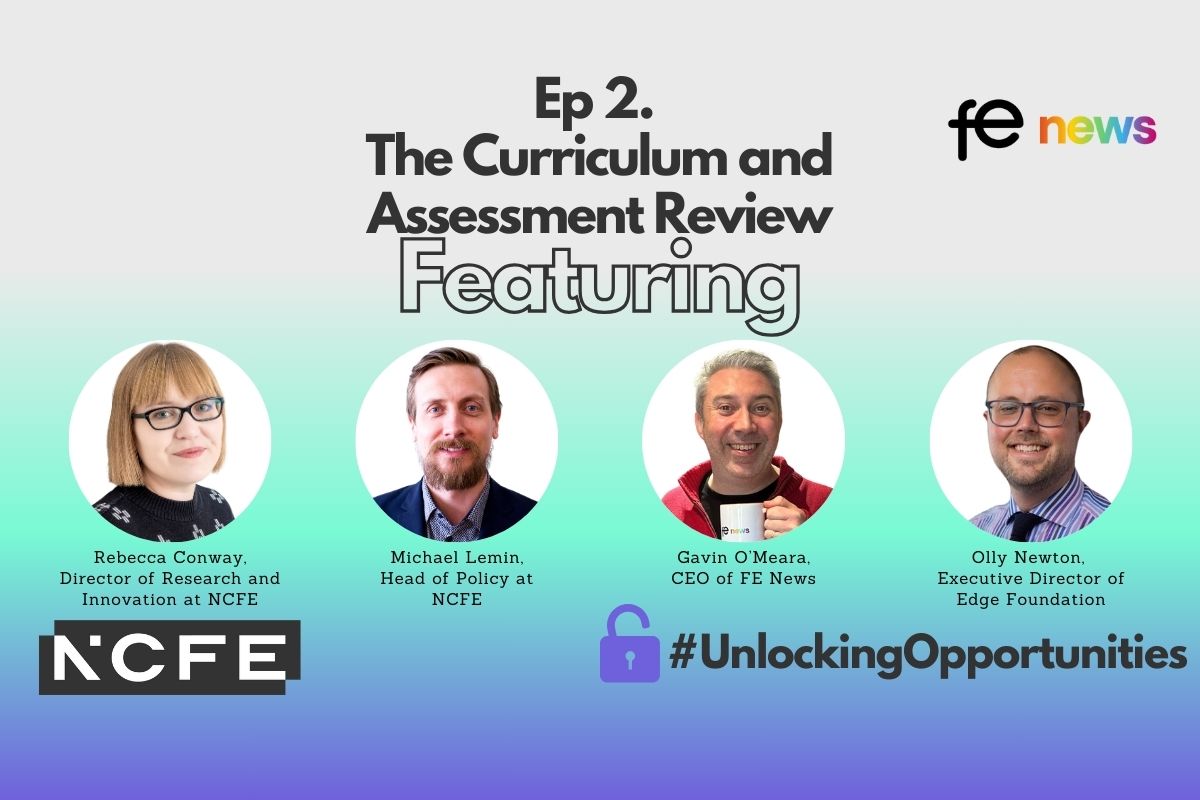Drop in English and Maths GCSE pass grades. What is the Sector Response?

Today is the GCSE results day. The results are interesting, but a little depressing with English and Maths results both down on last year, particularly for those who re-took their English and Maths GCSE’s. The Joint Council for Qaulifications (JCQ) highlighted that just 26.9% of students aged 17 and over achieved an A* – C pass grade in their English GCSE exams this year, down from 35.1% in 2015. Maths GCSE grades A* – C pass grade for learners aged over 17 was 29.5%, down from 35.8% in 2015.
The overall pass rate on English and Maths GCSE’s appear to have been significantly impacted by the GCSE re-take results. The overall English GCSE A* – C pass grade was 60.2%, compared to 65.4% last year. Overall Maths A* – C pass grades fell to 61% from 63.3% in 2015.
So how has the sector responded to the news on today’s GCSE results:
Mark Dawe, Chief Executive of the Association of Employment and Learning Providers (AELP) comments:
“Today we should be celebrating the fact that apprenticeships have become such an attractive option to young people with an increasing number of employers offering opportunities. However the government’s latest proposals under the levy threaten funding rate cuts of up to 52% for apprenticeships for 16 to 18 year olds in the most popular sectors such as ICT, construction and business administration. Furthermore the worst cuts will be inflicted on disadvantaged areas which will make a mockery of the Prime Minister’s social mobility agenda. We should also remember that Brexit has made it an imperative that we start training up more home grown talent if the tap of young migrant labour from the EU is turned off.
“If implemented, these cuts would make many apprenticeship programmes unviable to run at all and in other cases would endanger the quality of training which the apprentice receives. These are totally the wrong messages to be sending out on GCSE results day, but unless ministers order an immediate review, the consequences of these proposed cuts will be potentially devastating for the young people who want to choose a high quality apprenticeship rather than continue in sixth form or college.”
“Surely this is evidence enough that hitting students over the head with the same form of learning and assessment is not the way forward. Functional skills designed to develop core maths and English skills but with the learning contextualised and relevant is proven to engage and motivate these learners, particularly those who have been turned off these subjects by their school experience. Maths and English are the most vital skills for economic and social mobility but these results show that repeating the same exercise doesn’t work and a more learner and employer focused approach with functional skills should now be embedded post 16.”
Commenting on the decline in the pass rate for students resitting GCSE English and maths, Martin Doel, Chief Executive of the Association of Colleges (AoC), said: “Further education colleges face an ever increasing challenge as more students are re-sitting GCSE English and maths – an increase in entries of approximately 25% in the last year alone.
“The English and maths challenge is compounded by the fact that colleges may be supporting students who are demoralised and disheartened after failing to achieve the necessary grades after 11 years in school.
“It’s important that all young people have a good standard of literacy and numeracy but not everyone can get a grade C at GCSE. Colleges seek to provide the best possible chance for their students to succeed and progress during their studies regardless of their starting point.
“The Government must consider creating a qualification that is more fit-for-purpose in developing English and maths skills that complement technical and professional studies, motivate students and meet the needs of employers, a requirement that was recognised in the recent report by Lord Sainsbury [Technical education reform: the case for change.”
Jill Stokoe, education policy advisor at the Association of Teachers and Lecturers (ATL), said:
“Well done to the students on the hard work they put into achieving their GCSE results this year helping them to continue to study for A-levels or to go into vocational training.
“However, the Government must acknowledge that their policy to force 17-year-olds to re-take English and Maths until they obtain a pass grade is not in the best interests of students, and is clearly not working because fewer students are passing their re-sits now that they are compulsory. And this policy is clearly having an impact on the overall results for English and maths GCSEs, as this year nearly 40% of students didn’t achieve A*-C.
“We suspect that the fall in A*-C grades reflects the impact of the Government’s ill-thought-out policy to push all students to do the English Baccalaureate (EBacc) subjects. This is making many students study subjects in which they do not excel, rather than subjects in which they would do well and could provide good career opportunities. It also means that students cannot focus on improving their English and maths skills.
“The Government’s plans to make 90% of students study EBacc subjects ignores the fact that there is already a shortage of teachers for most of the EBacc subjects – English, maths, physics, history, geography and modern foreign languages (MFL).
“We are concerned that the number of students studying MFL has continued to decline. This will have a knock-on impact on the number of staff qualified to teach these subjects in the future.”
Sharon Walpole, CEO of www.notgoingtouni.co.uk, commented:
“The number of those achieving A* to C grades may be down ever so slightly this year, but schools around the UK are consistently achieving high grades and that needs to be celebrated. Our young people are continuing to amaze us at how well they do and the standard of our state education is very high.
“With students having to stay in some form of education now until they’re 18 years old, it’s important for 15 and 16 year olds to be aware of the options available to them; schools will no doubt encourage them to stay and do their A Levels, but this isn’t the only option available. For some, taking on an apprenticeship where they can work four days a week and learn one day a week, whilst earning money, may be just the route for them. The A Levels system has changed over recent years, with some disruption to the grading system moving forwards, so for some students, other education alternatives are a safer and surer way to achieve their goals.”
Petra Wilton, director of strategy for the Chartered Management Institute (CMI), said:
“Today’s GCSE results are a pivotal moment for countless UK students as they now look ahead at their career options. Unfortunately, too few have had exposure to the working world and up-to-date careers advice, so struggle to assess their next steps. Those considering management careers can now opt for the new Team Leader Apprenticeships or can continue their studies, before seeking professional skills. Today we released our Skills First White Paper, which states that 25% of all job vacancies in the UK last year remained vacant due to a lack of skilled candidates. We must fix the problem at its source, and work better with employers and educators, to ensure those leaving school are fully prepared for the world of work.”
In response to the today’s GCSE results, The Education Endowment Foundation has launched a £5m funding round to improve outcomes for 16-18 year olds who have not yet achieved a C grade or above at GCSE English and / or math. Commenting on today’s GCSE results, Sir Kevan Collins, Chief Executive of the Education Endowment Foundation, said:
“We warmly congratulate all those students who’ve got the results their efforts merit. But what really leaps out is the high number of young people who have fallen short of the expected standard of five good GCSEs including English and maths. These qualifications are their passport to success in later life. Those from poorer backgrounds are particularly vulnerable to finding themselves unable to access good quality jobs, apprenticeships and further education.
“Only one in four made the grade in English and Maths after sitting the exam a second time. Simply keeping those teenagers in compulsory education for another year is not enough to ensure they leave with the skills they’ll need. We have to generate more and better evidence of which teaching and learning strategies work for 16-18 year olds if we want to make sure re-sitting their exams is worthwhile.”
An Edge Foundation spokesperson said:
‘Today’s results are a wake-up call for the Government and its misguided ambition for the vast majority of pupils to take the full suite of EBacc subjects. Entries for the practical and creative subjects excluded from the EBacc such as Design and Technology, art and music, are already falling, even though these equip young people with exactly the skills they need in a modern digitised economy.
‘The increase in entries in EBacc subjects like history and geography shows schools are responding, but grades in those subjects are falling. Meanwhile entries in languages like French have dropped dramatically – forcing more students to take them will squeeze out technical and creative subjects whilst switching young people off. Young people need a broad and balanced curriculum that recognises the value of everyone’s talents.’
What do you think about today’s GCSE’s results?











Responses